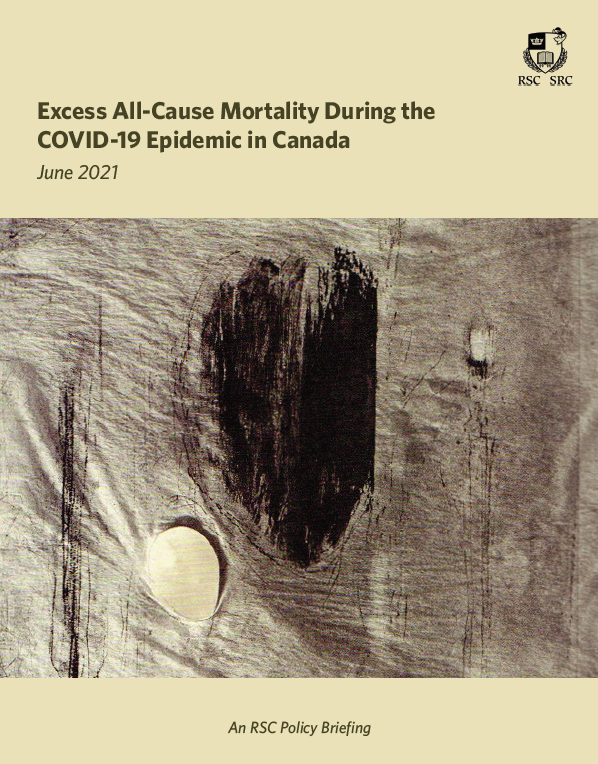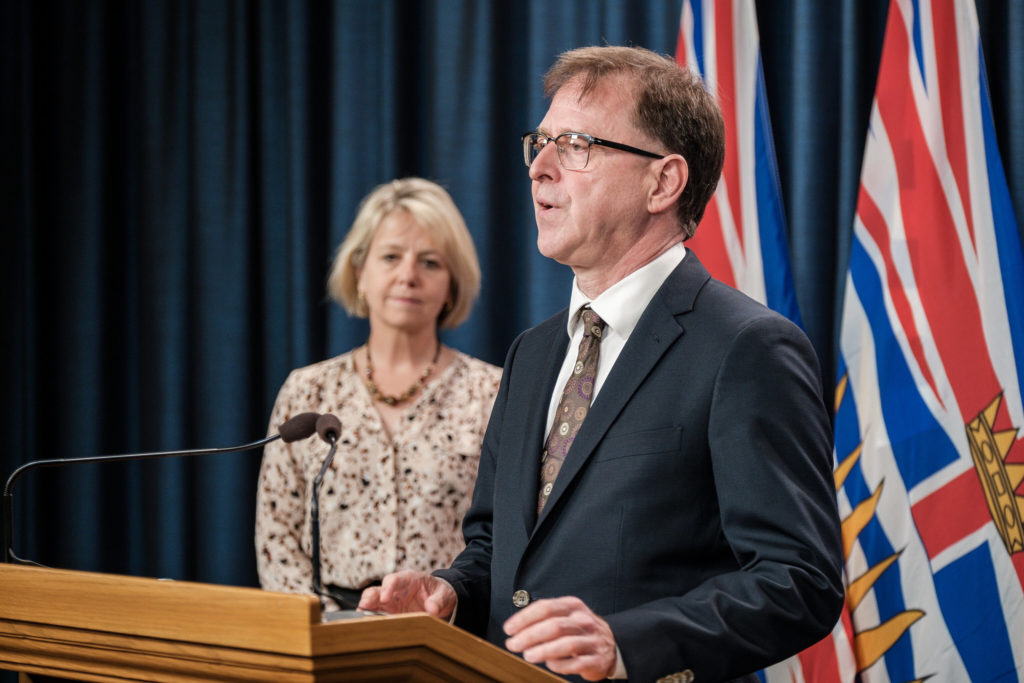
Bob Mackin
An expert report suggests there may have been twice as many deaths in Canada from coronavirus than governments have reported.
The Royal Society of Canada’s June 29-published task force report, Excess All-Cause Mortality During the COVID-19 Epidemic in Canada, recommends mandating weekly reporting of death statistics due to all causes in all provinces and territories and to test for COVID-19 among all people who die in any setting.

Cover of June 29-published Royal Society of Canada report
The task force, led by Tara Moriarty, chair of dentistry and medicine at the University of Toronto, said without timely case and fatality data, Canada will not have a clear understanding of what happened, or continues to happen, with the COVID-19 pandemic until at least 2022.
“The pandemic has exposed many uncomfortable truths about Canadian society, among them, the limits of our healthcare system, tragic flaws in long-term care, our systemic racism, and our inability to protect the most at risk when an infectious threat arrives in our midst,” the report said.
The research estimated that from February to November 2020, the deaths from COVID-19 of 6,000 people in Canada, aged 45 and up, went undetected, unreported or unattributed to COVID-19.
As of June 28, Public Health Agency of Canada counted more than 1.41 million cases and 26,238 deaths.
“This suggests that if Canada has continued to miss these fatalities at the same rate since last November, the pandemic mortality burden may be two times higher than reported.”
The report also recommended establishing a national COVID-19 mortality task force to investigate why so many cases and deaths in Canada have been under-reported, and to immediately adopt the U.S. Centers for Disease Control standard for estimating excess mortality.
“We find that most of Canada’s cases prior to November 28, 2020 were not reported until after excess deaths began rising rapidly, a trend that continued until the third wave. This disturbing pattern demonstrates that through much of 2020, the growing number of COVID-19 fatalities—not reported cases—was the earliest indicator of the epidemic’s trajectory.”
The report suggested public focus on the tragedy in nursing homes made it difficult to see the high number of frail older adults dying in their own homes, A quarter of likely missed deaths also occurred in people aged 45-64, who were likely frontline and essential workers. recent immigrants and people living in multigenerational households.

Dr. Tara Moriarty (U of T)
“The failure to recognize the heightened COVID-19 risk faced by community-dwelling elders and economically precarious, racialized workers likely delayed the implementation of public health interventions that may well have saved lives.”
Without adequate situational awareness or surveillance testing, Canadian public health officials and policy makers may not have recognized the prevalence of COVID-19 cases and fatalities in the community, prior to and between the pandemic’s major waves.
The study also found that approximately 80% of excess deaths unattributed to COVID-19 occurred four to six weeks before and between each of the documented spikes in fatalities. British Columbia was among the provinces that either do not report probable causes of death or and one of the provinces where cause of death data is only complete as of February 2020 — before Dr. Bonnie Henry declared the coronavirus public health emergency.

Adrian Dix (right) and Dr. Bonnie Henry (BC Gov)
“It is possible that the gap we have uncovered between reported and missed COVID-19 fatalities in the community may be narrower than we currently estimate. But given the extreme delays in Canada’s cause-of-death reporting, a system which remains largely paper-based and lags far behind other high-income countries, there is not enough data beyond June 27, 2020 to reach a concrete conclusion as to the full tally of missed deaths.”
Henry has reported several errors and glitches verbally in her media briefings with Health Minister Adrian Dix since last year. But a central log of B.C. case and death reporting errors and corrections has not been published, even after theBreaker.news asked under the freedom of information laws.
Support theBreaker.news for as low as $2 a month on Patreon. Find out how. Click here.











